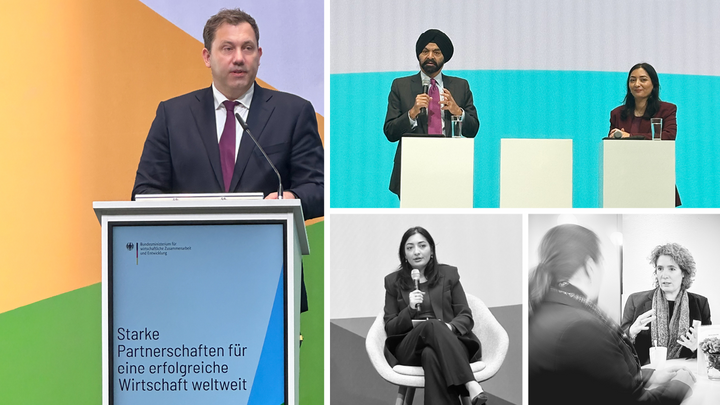On 7 October 2025, the BMZ presented its new action plan at the conference, marking the beginning of a new phase in German development cooperation. The plan emphasises closer coordination between politics, business, and development goals, as well as strategic partnerships and the greater involvement of the private sector. Tanja Baur, a member of Dorsch Global's Executive Board, actively participated in the discussion, contributing the company's perspectives to the dialogue.
Development policy is now seen as an integrated pillar of foreign policy, economic development, trade, and security – no longer as a standalone effort. Development Minister Reem Alabali-Radovan outlined three key areas:
1. Intensifying Dialogue with the German Business Community
- Strengthened involvement of the private sector, including prior to government negotiations with partner countries.
2. Removing Structural Barriers
- Improve competitiveness of German and European companies including a review of public procurement and award criteria
- Strengthen and develop Compact with Africa jointly with the Federal Ministry of Finance
- Scaling private investment through blended finance instruments
- Enhance legally secure and transparent framework conditions in partner countries
3. Expanding Promotion and Support focusing on
- Critical and strategic raw materials
- Energy transition
- Skilled workforce development for partner countries and the German economy
- Reconstruction efforts in Syria, Ukraine, and Gaza.
Focus areas are infrastructure, energy, food security, climate resilience, governance, urbanisation and smart cities and reconstruction (Syria, Ukraine and Gaza).
Keynote speakers, including Finance Minister Lars Klingbeil, State Minister Serap Güler, Parliamentary State Secretary Stefan Rouenhoff, and World Bank President Ajay Banga, all emphasised the importance of strong partnerships with the private sector for sustainable economic growth and global prosperity.
Tanja Baur highlighted Dorsch Global’s active role: “Dorsch is actively participating in shaping the reorientation of German development cooperation and engaged in expert rounds with BMZ, BMWE, AA, the German Parliament and other stakeholders. We will continue to advocate for practical frameworks that enable entrepreneurial engagement and impact in partner countries.”
